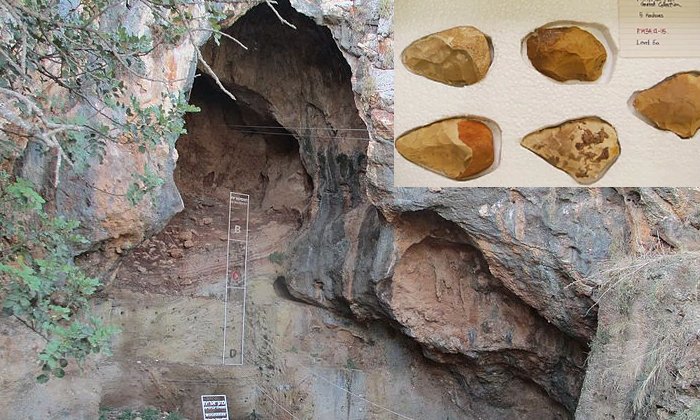Conny Waters - AncientPages.com - Researchers examined the prehistoric, 350,000-year-old stone tool that was used to grind food and other materials, and to make the hard life of hominids easier.
The artifact is the oldest tool identified to date, was discovered near Haifa, and was used at least 50,000 years the appearance of Homo sapiens, according to a new study.
Researchers from the University of Haifa describe the artifact as a round dolomite stone that bears microscopic signs of grinding. The rock was discovered in northern Israel, in the Tabun Cave on Mount Carmel, one of the most prominent prehistoric sites in the world.
The tool dates from a period some 150,000 years earlier than any other tool used for grinding found to date.
The Tabun Cave is part of a complex of sites that make up the UNESCO World Heritage Site on the Carmel. Evidence of human and pre-human activity over the last 500,000 years has been uncovered in the cave, which for 90 has supplied material that has contributed to the understanding of human evolution, writes Israel Hayom.
According to the researchers, this very old and rather unique find indicates that hominids used grinding as a way of processing various materials, which they described as "major technology". It was perhaps their desire to improve their conditions of daily life."
"The small cobble is of immense importance because it allows us to trace the earliest origins of the abrasion action and how cognitive and motor abilities that developed during human evolution eventually evolved into important phenomena in human culture to this day, primarily involving abrasion and development of food production techniques, stationary settlement, agriculture, and storage and later an increase in social and economic complexity."
"We concluded that the ancient stone was used for the grinding of soft materials, although we do not yet know which ones exactly," Dr. Iria Groman Yroslavski, said.
According to Ron Shimelmitz of the University of Haifa's Zinman Institute of Archaeology, the method would have allowed the hominids to process materials much more delicately. And although the researchers are confident they know how the tool was used, it remains a mystery what the tool was used for.
The sheer simplicity of the tool may have led to researchers overlooking them in the past.
The discovery was published in the January 2021 issue of the Journal of Human Evolution
Written by Conny Waters - AncientPages.com Staff Writer
